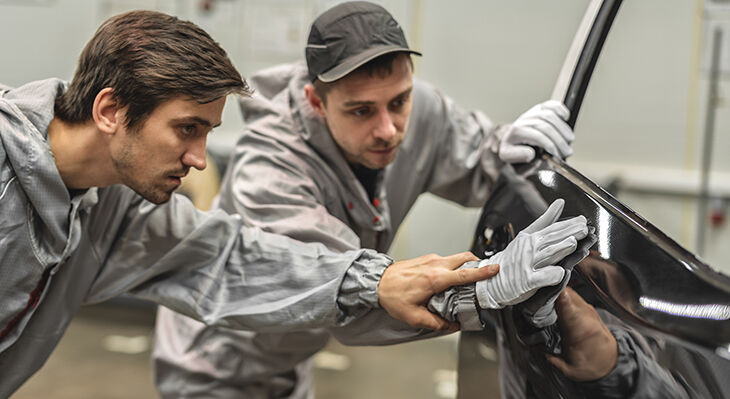Quality Initiatives of Intermediary Institutions
Chambers of Trade, Industry and Commerce, employers’ associations and many other intermediary institutions make an indispensable contribution to ensuring and promoting the quality of in-company training through a wide range of measures. A project carried out by DEQA-VET is now attempting to systematically investigate quality initiatives at the intermediate level.

Quality assurance of in-company training in Germany takes place at all three levels of vocational education and training: In addition to the system level and the company level, the intermediate level is of central importance.
First and foremost, the chambers play a central role in quality assurance of in-company training. According to the BBiG, their tasks include organising examinations, advising companies and trainees and monitoring the implementation of in-company training.
In addition to these legally defined tasks, the chambers have expanded their quality assurance services for training companies in recent years in order to support them even better in providing good training. This has resulted in a wide variety of innovative approaches throughout Germany that address the promotion, safeguarding and awarding of in-company training quality.
But what can actually be said about the emergence of these "quality initiatives", what are their thematic focuses and goals? What quality criteria are used as a basis in each case and how widespread are these special measures? On the basis of a multi-stage, multi-method study, an attempt was made to provide answers to these questions and to develop a first systematic overview of the quality initiatives of intermediate institutions using the example of the chambers of trade and commerce (IHK) and chambers of crafts (Hwk).
The project "Quality initiatives of intermediate institutions and voluntary certification offers for small and medium-sized training companies in the dual system" (duration 2019 to 2021) was funded within the framework of the EU Erasmus+ programme. You can find the central project results as a download file on the right side of this page.
The European Commission's support for the production of this publication does not constitute an endorsement of the contents, which reflect the views only of the authors, and the Commission cannot be held responsible for any use which may be made of the information contained therein.
